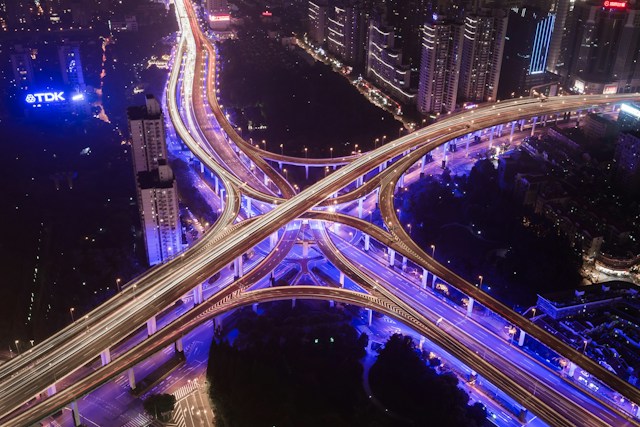Cities across the globe are transforming into smart urban habitats, leveraging the power of technology to optimize operations, improve efficiency, and enhance the quality of life for their inhabitants. At the heart of this transformation is the management and optimization of energy consumption. With the advent of artificial intelligence (AI), smart cities are harnessing the potential to optimize their energy systems, manage demand, and implement real-time adjustments to ensure sustainable consumption.
AI and Energy Management: The Dynamic Duo
So, you might be wondering how exactly does AI facilitate energy optimization in smart cities? The answer lies in the data-driven approach that AI brings to the table. By leveraging real-time data and predictive analytics, AI can effectively manage and optimize energy consumption in smart cities.
A voir aussi : What Are the Best Practices for Digital Marketing and Growing Your Online Presence?
Artificial intelligence, with its ability to process and analyze vast amounts of data, makes it possible to forecast energy demand, detect anomalies, and optimize consumption. This is done through a combination of machine learning algorithms and deep learning models, which can learn from historical data, recognize patterns, and make predictions about future demand.
For example, an AI system could analyze weather forecasts, historical energy consumption data, and information about planned city events to predict the city’s energy needs. If a heatwave is forecasted, the system would anticipate higher demand for cooling and thus, could optimize energy distribution accordingly.
A lire en complément : What Are the Latest Developments in Mental Health and Well-Being Practices?
Smart Grids: Power Distribution Gets Smarter
In the context of smart cities, one of the vital applications of AI is in the management of smart grids. These are electricity networks that use digital technology to monitor and manage the production and distribution of electricity.
AI can enhance the performance of smart grids in various ways. It can predict peak load times, optimize energy distribution, and manage real-time adjustments to grid operations, thereby preventing blackouts and ensuring a stable power supply. For instance, AI algorithms can predict periods of high demand and adjust the grid’s operations to meet this demand, thus ensuring efficiency and avoiding waste.
In addition, AI can help detect faults in the grid more quickly and accurately than traditional methods, minimizing downtime and improving the reliability of power supply. This not only enhances the operational efficiency of the city but also contributes significantly to the sustainable use of energy.
The IoT Connection: A Network of Efficiency
The Internet of Things (IoT) is another technology that plays a pivotal role in optimizing energy consumption in smart cities. This technology, when coupled with AI, becomes a powerful tool that can significantly enhance energy efficiency.
IoT devices, such as smart meters and sensors, can collect real-time data on energy use from various sources across the city. This data can then be processed and analyzed by AI systems to provide insights into energy usage patterns, identify inefficiencies, and suggest solutions to optimize consumption. For example, if a particular building is consuming more energy than necessary, the AI system can identify this and suggest measures to reduce consumption.
Waste Management: Turning Waste into Power
Last, but definitely not least, AI can also contribute to energy optimization through effective waste management. Smart cities produce a large amount of waste, and handling this waste in a sustainable manner is a significant challenge.
AI, in tandem with other technologies, can help smart cities transform waste into energy. It can optimize waste collection routes, predict waste generation, and even sort waste for recycling. AI can also help in the efficient management of waste-to-energy plants, where waste is converted into electricity or heat. By optimizing the operations of these plants, AI can ensure the maximum energy output from waste, thereby contributing to sustainable energy consumption.
In summary, AI has the potential to revolutionize energy management in smart cities, making them more efficient, sustainable, and livable. It is indeed a game-changer, promising a future where cities are not just smart, but also energy-wise!
Renewable Energy: AI in Harnessing Power
In the quest for energy optimization and sustainability, renewable energy sources play a crucial role. These include solar power, wind energy, hydroelectric power and more. The inherent challenge with renewable energy sources is their variability. For instance, solar power is dependent on sunlight, wind energy on wind speeds, and so forth. This is where artificial intelligence steps in to optimize the harnessing of renewable energy.
AI can process large amounts of data from weather forecasts and past climate patterns to predict the availability of these renewable sources. For instance, machine learning can anticipate the hours of sunlight in a day, the intensity of the sunlight, and the areas that will receive the most sunlight. This information can then be used to optimize the operation of solar panels, ensuring the most efficient harnessing of solar energy.
Moreover, AI can manage the storage and distribution of this harnessed energy. It can predict the energy demand of the city in real-time and distribute the harnessed renewable energy accordingly, minimizing waste and maximizing usage. Furthermore, AI can also manage the energy storage system, storing excess energy when the supply is high and releasing it when the demand is high, thereby ensuring a constant supply of power.
In essence, AI not only facilitates the harnessing of renewable energy in a more efficient manner, but also manages its storage and distribution, thus playing a pivotal role in optimizing energy consumption in smart cities.
Traffic Management: Steering Towards Efficiency
One might wonder, what does traffic management have to do with energy consumption? The answer lies in understanding the enormous amount of energy consumed by transportation systems in a city. Inefficient traffic management leads to longer travel times, more fuel consumption and increased carbon emissions. As such, optimizing traffic management can significantly reduce energy consumption in smart cities.
AI can help achieve this by optimizing traffic signals, predicting traffic congestion and suggesting alternate routes. For instance, AI can analyze real-time data from traffic cameras, sensors on roads, and other IoT devices to understand traffic patterns. Using this data, it can then optimize the traffic signal timings to ensure smooth flow of traffic, thereby reducing fuel consumption and emissions.
In addition, AI can also predict traffic congestion based on historical data, current traffic conditions, and even special events in the city. It can then suggest alternate routes to motorists, helping them reach their destinations faster and reducing the overall fuel consumption in the city.
In conclusion, artificial intelligence is a powerful tool that can greatly optimize energy consumption in smart cities. From managing and optimizing smart grids, to harnessing renewable energy sources, to efficient waste management and traffic management, AI has a significant role to play in creating energy-efficient urban habitats. As we continue to grapple with the dual challenges of urbanization and climate change, leveraging AI for energy optimization in smart cities holds the key to sustainable development and a better quality of life.













